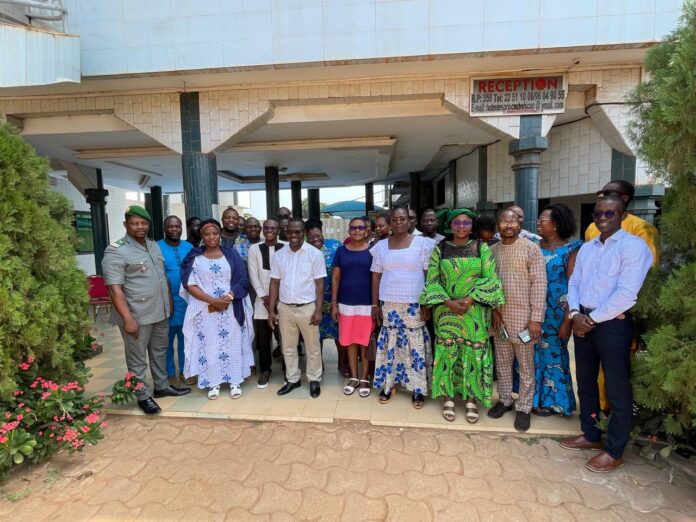Federal Government has validated the country’s National Adaptation Plan (NAP) Document to tackle climate related challenges in the country.
Malam Balarabe Lawal, the Minister of Environment, said this at the High-Level Validation Workshop on Nigeria’s National Adaptation Plan (NAP) Document on Wednesday in Abuja.
The News Agency of Nigeria reports that the NAP document was validated before submission to the United Nations Framework Convention on Climate Change (UNFCCC) ahead of COP 30 in Belem, Brazil.
Lawal who was represented by Mr Mahmud Kambari, the Permanent Secretary in the ministry, expressed worry over climate change manifest from changing weather patterns such as Drought and Desertification, to rising sea levels, inundation of coastal lands by sea water and flooding.
“Climate Change is the defining issue of our time and we are at a defining moment, permit me to draw your attention to the fact that Nigeria is highly vulnerable to the impacts of climate change.
“These challenges he worried that they come with adverse impacts on food security, human health and settlements resulting in increased loss of lives and property.
“The challenges of climate change are global in scope and unprecedented in scale. If drastic and decisive actions are not taken now, coping with these impacts in the future will be more difficult and costly,” the Minister said.
He reiterated that addressing climate change is one of the cardinal agenda of the present administration.
“As Nigeria’s NAP Document is being validated today, the next phase would be the implementation.
“All hands must be on deck to ensure that Nigeria is able to attract the needed funds, both locally and internationally, to address climate change impacts, especially with regards to adaptation,” Lawal said.
Dr Iniobong Abiola-Awe, the Director of Climate Change Department in the ministry, said that climate change impacts are on the rise globally and Nigeria is not exempted.
“Extreme weather events and climate variability are impacting many sectors, key infrastructure, biodiversity among others and is causing security challenges.
“These impacts are projected to become even more severe under future climate change scenarios. While efforts are on, to mitigate the effect of climate change, the need for adaptation is also very important so that we can adjust our systems and operations to these effects without affecting our daily activities.
“Nigeria is presently formulating its NAP as a means of identifying medium to long term adaptation needs, developing and implementing strategies and programmes to address those needs in a participatory and fully transparent approach,” Abiola-Awe said.
Also speaking, Mr Gift Gewona, the Task Manager United Nations Environment Programme in Nigeria said that the NAP document is a living document that allows Nigeria to plan for its short-term, medium-term and long-term activities to ensure that the resilience of communities are gained.
“I will like to thank the whole team that has been involved in this process. We are going to ensure we implement the plan to finance the global climate fund.
“This process has emanated from the fact that Nigeria is facing serious climate challenges and from the climate projections,” Gewona said.
Mrs Angelina Ugben, the President of the Global Disabilities Green Initiative, an NGO urged stakeholders to ensure the NAP document goes beyond inclusion.
“At Global Disability Great Initiative , we strongly advocate for a climate adaptation framework that is inclusive, accessible and disability responsive.
“We commend the Ministry of Environment and all collaborative bodies for the inclusive approach taken in the development of this plan.
Dr Nifesimi Ogunkua Climate Specialist Food and Agricultural Organisation (FAO) of the United Nations assured their support for the NAP document saying that FAO would offer technical guidance and support for the implementation of the project.




